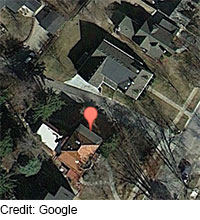We’ve got three picks from our writers this week – enjoy!
Don’t Even Think of Parking Here
Feloney v. Baye
Nebraska Supreme Court (6/1/12)
 For several years, Michael Feloney used his neighbor Robert Baye’s driveway to turn his vehicle to enter his garage. Eventually Baye decided to build a retaining wall on his driveway, which prevented Feloney from using Baye’s driveway. Feloney sued Baye, requesting the district court to impose a prescriptive easement on Baye’s driveway for ingress and egress. The district court granted summary judgment for Baye, concluding (1) Feloney’s use of the driveway was permissive under the “unenclosed land” rule, which provides an exception to the rule presuming adverseness when the use is over unenclosed land; and (2) thus Feloney could not prove the elements required for a prescriptive easement. The Supreme Court affirmed but for different reasons, holding (1) the presumption of permissiveness arises when the land is unenclosed wilderness and does not apply in urban settings such as in this case; (2) when the owner of a property has opened or maintained a right of way for his own use and the claimant’s use appears to be in common with that use, the presumption arises that the use is permissive; and (3) Feloney’s use of Baye’s driveway was presumptively permissive under this rationale.
For several years, Michael Feloney used his neighbor Robert Baye’s driveway to turn his vehicle to enter his garage. Eventually Baye decided to build a retaining wall on his driveway, which prevented Feloney from using Baye’s driveway. Feloney sued Baye, requesting the district court to impose a prescriptive easement on Baye’s driveway for ingress and egress. The district court granted summary judgment for Baye, concluding (1) Feloney’s use of the driveway was permissive under the “unenclosed land” rule, which provides an exception to the rule presuming adverseness when the use is over unenclosed land; and (2) thus Feloney could not prove the elements required for a prescriptive easement. The Supreme Court affirmed but for different reasons, holding (1) the presumption of permissiveness arises when the land is unenclosed wilderness and does not apply in urban settings such as in this case; (2) when the owner of a property has opened or maintained a right of way for his own use and the claimant’s use appears to be in common with that use, the presumption arises that the use is permissive; and (3) Feloney’s use of Baye’s driveway was presumptively permissive under this rationale.
Hello, House of Saud? You’ve Been Served
Angellino v. Royal Family Al-Saud
United States Court of Appeals – DC Circuit (5/5/2012)
Plaintiff filed a breach of contract action seeking over $12 million from the Royal Family Al-Saud and sixteen of its members (collectively, defendants) for failing to pay him for artwork he alleged they commissioned. Plaintiff had designed 29 sculptures for the Royal Family in 2006 and 2007. Defendants kept the sculptures but never paid plaintiff for any of them. Plaintiff attempted to serve process on defendants by mailing a copy of the summons and complaint to the Royal Embassy of Saudi Arabia, where plaintiff ordinarily communicated with defendants in past instances, but the Embassy refused to accept the first class mailing. The district court dismissed the pro se complaint for failure to prosecute under Local Civil Rule 83.23 because plaintiff failed to serve process on defendants pursuant to FRCP 4(f). The court held that, viewing all of the circumstances – the reasonable probability that plaintiff could obtain service on at least one of the defendants, plaintiff’s dogged attempts to effect service of process and the district court’s failure to provide “a form of notice sufficiently understandable to one in [plaintiff’s] circumstances fairly to apprise him of what is required” to serve process, and to provide notice of the consequences of failing to serve process – the district court abused its discretion in dismissing the complaint. Accordingly, the court reversed the judgment.
Blame Canada
Brownmark Films, LLC v. Comedy Partners
United States Court of Appeals – 7th Circuit (6/7/12)
An episode of the animated television show, South Park, entitled “Canada On Strike,” satirized the 2007-2008 Writers’ Guild of America strike, popular viral videos, and the difficulty of monetizing Internet fame. In the episode, characters create a video that is a parody of the real world viral video, “What What (In The Butt).” Brownmark, the copyright holder for the original WWITB video, sued for copyright infringement under the Copyright Act of 1976, 17 U.S.C.101. South Park Digital Studios (SPDS) claimed that the South Park version was fair use and attached the two works. Brownmark argued that the court could not consider fair use on a 12(b)(6) motion to dismiss. The district court dismissed. The Seventh Circuit affirmed the “well-reasoned and delightful opinion.” The court properly decided fair use on a motion; the only evidence needed to decide the issue were the original version of WWITB and the episode at issue. Under the incorporation-by-reference doctrine, reliance on the attached works did not violate Rule 12(d); if a plaintiff mentions a document in his complaint, the defendant may then submit the document to the court without converting defendant’s 12(b)(6) motion to a motion for summary judgment.
